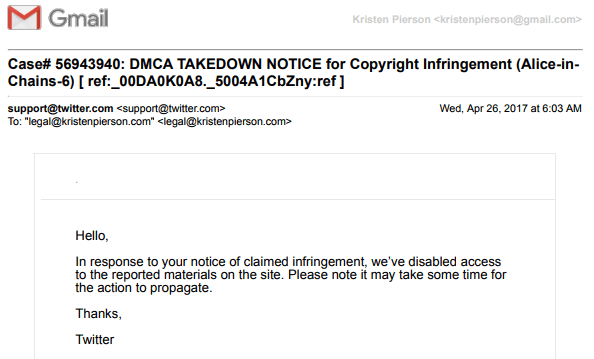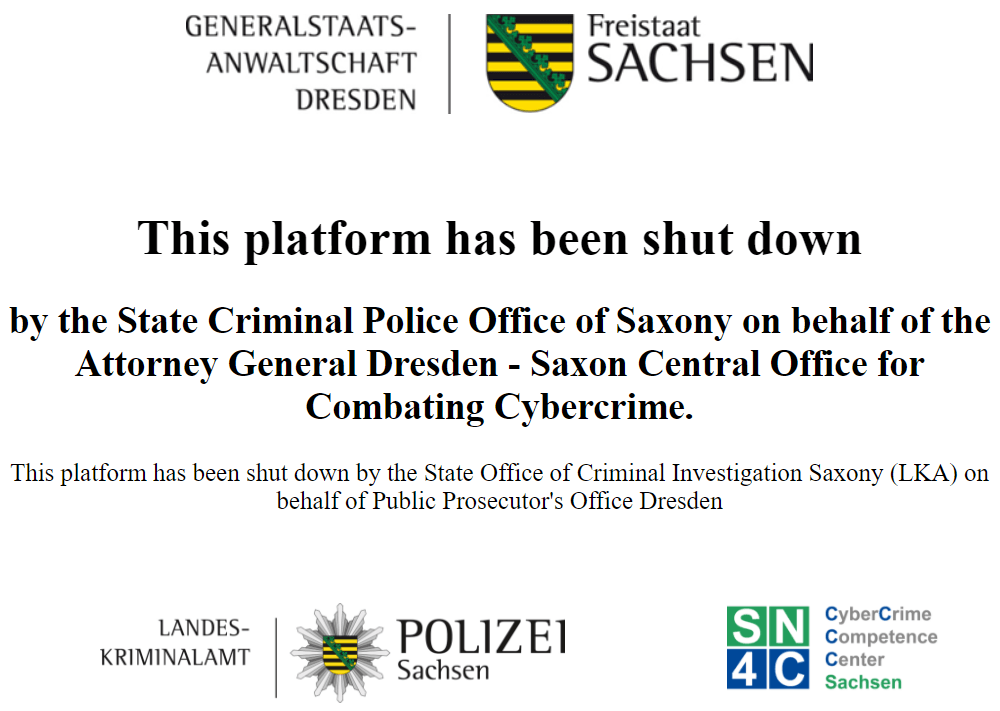Twitter Sued Over Slow Response to DMCA Takedown Request
dimanche 12 novembre 2017 à 06:12 In common with many other user-generated content sites, Twitter is used by some of its members to host or link to copyright-infringing material.
In common with many other user-generated content sites, Twitter is used by some of its members to host or link to copyright-infringing material.
If rightsholders submit a takedown request, Twitter swiftly takes the infringing content down. Over the past several months the company has processed thousands of requests and complied with most of them.
However, a new lawsuit filed in a California federal court suggests that Twitter’s takedown efforts aren’t perfect.
Rhode Island-based photographer Kristen Pierson filed a complaint against Twitter, accusing the company of hosting and linking to one of her works without permission.
The photo in question, taken at an Alice in Chains concert in 2006, was posted by Twitter user Karen Juanita. After Pierson found out she sent a DMCA takedown notice to Twitter on April 26 of this year.

Twitter promptly replied that it had “disabled access” to the photo, but this didn’t happen right away. While Twitter noted that it could take some time for the removal to propagate, it appears that something went wrong.

According to the complaint, it took 90 days before it was effectively taken down. It seems unlikely that Twitter intentionally waited three months, but Pierson is not looking for an excuse. Instead, she’s demanding damages from the social media outfit.
“Twitter had actual knowledge of the direct infringement and contributory infringement. Pierson provided notice to Twitter in compliance with the DMCA, and Twitter failed to expeditiously disable access to or remove the Copyrighted Photograph from their servers,” the complaint notes.
“Alternatively, Twitter directly infringed Pierson’s copyrights by continuing to allow public access to the Copyrighted Photograph on Twitter’s server or on servers controlled by Twitter.”
Theoretically, damages could go up to $150,000, should willful copyright infringement be proven. However, it’s more likely that both parties will settle their differences, or that the case will be dismissed for other reasons.
This isn’t the first time that Twitter has been sued for failing to promptly remove infringing content. Several photographers, including Pierson herself, have done so before. In most cases, these lawsuits are settled after a few weeks, behind closed doors.
—
A copy of the complaint is available here (pdf).
Source: TF, for the latest info on copyright, file-sharing, torrent sites and more. We also have VPN discounts, offers and coupons
 Sci-Hub, often referred to as the “Pirate Bay of Science,” hasn’t had a particularly good run in US courts so far.
Sci-Hub, often referred to as the “Pirate Bay of Science,” hasn’t had a particularly good run in US courts so far.


 In recent years, BitTorrent users around the world have been targeted with threats. They can either pay a significant settlement fee, or face far worse in court.
In recent years, BitTorrent users around the world have been targeted with threats. They can either pay a significant settlement fee, or face far worse in court.
